
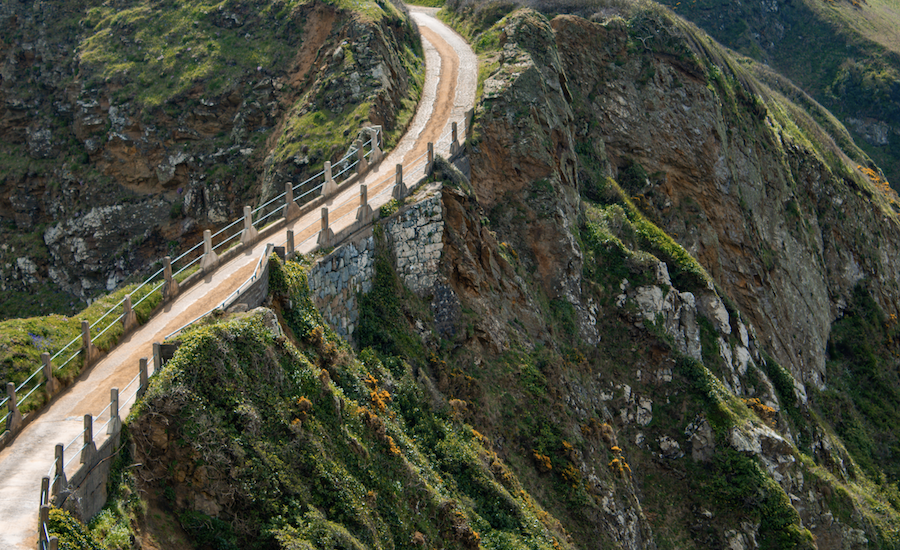

Picture the scene. It’s 2033 in the isle of Sark. It’s a sunny morning in early summer. Hotels and holiday lets from the Venus Pools to the Buddhist carving are open for business, with a healthy slick of bookings streaming through.
Some guests gather at the top of Harbour Hill after a breakfast heavy with Sark dairy products and locally baked bread. They’re hopping on the toaster rack, heading for a charter boat trip around the caves and bays. Trundling down, they gaze at the countless bluebells lining the earth banks and paths, returned to dominance due to conservation efforts to eradicate the invasive stinking onions. The ride is smooth thanks to improved surfacing on the road.
Stepping off, they see the latest ferry-load of visitors enjoying an al fresco coffee and admiring the sea views from the café where the incinerator once stood. Among the patrons are environmental professionals arriving for a research conference set up by local nature groups.
The boaters pass through the tunnel, down the breakwater steps to the floating pontoons where their trip on the water will begin. Day trippers arrive from across the Channel, mooring up their private vessels of varying sizes in what berths remain. The charter chugs away heading for Dixcart bay. There’ll be time for swimming and sunbathing before lunch and a glass of wine. Later they’ll try a spot of fishing.
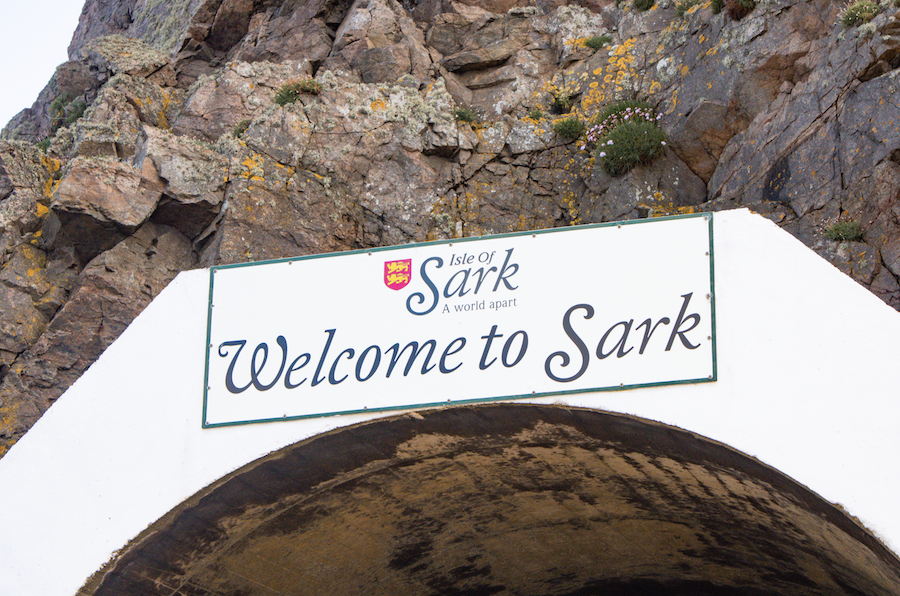
Pictured: Sark's harbour, with the tunnel acting as an entrance to the island.
Back on land, those in the café watch it skim out of view. Looking up at the scorched cliff face behind them, they ponder what could’ve caused it. Up at Le Lache headland, smoke bellows from the repositioned incinerator, while workers sort through the remaining rubbish for recycling. Others churn the community compost in preparation for a steady stream of locals on electric cargo bikes and tractors to pick up loads for their land.
One driver fills up a cart and takes it back to the regenerative community farm at the old vineyard. Farmhands have been on site for most of the morning toiling under the sun, pruning and pulling in the harvest. Some will trade their labour for food at the end of the day.
A seasoned rambler strolls down the Avenue seeking a snack before clambering the beautiful cliff paths. He’s spoiled for choice. Once satisfied, he wanders past the post office and spots something new. He expects to see a destroyed house on the adjacent plot. Now it looks like flats built in a classic style, but with solar panels on the roof. There’s a swing-set on the lawn.
This vision is not the self-generated work of AI.
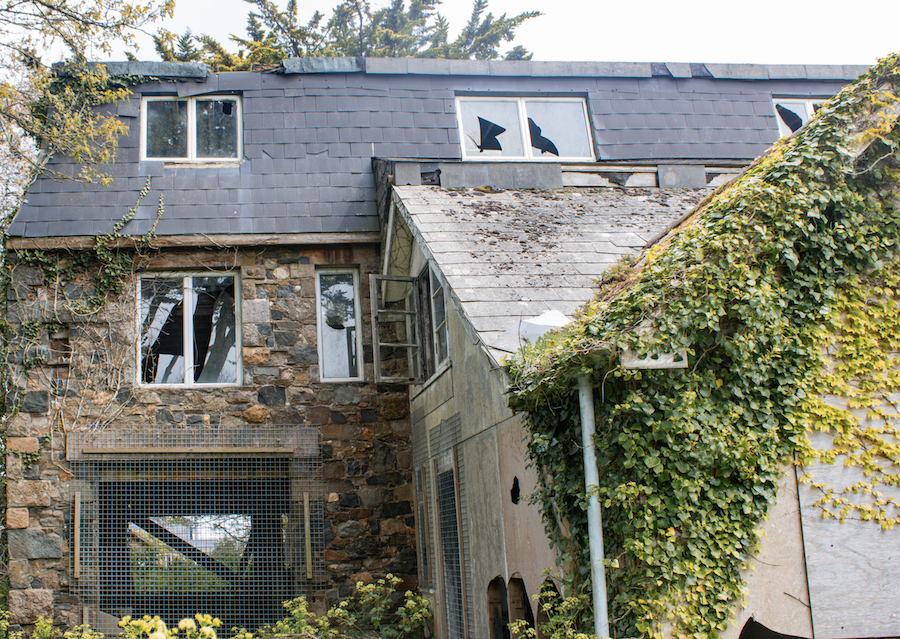
Pictured: Sark's derelict houses were discussed.
It is the desire of large swathes of the local population. Around 600 Sark residents expressed their views in April 2023 as part of the first stage of a ‘visioning exercise’ undertaken by His Majesty’s Prince’s Foundation.
They were invited to the island by the Seigneur, Christopher Beaumont, and German entrepreneur Swen Lorenz, who set up shop in Sark in 2004. Both are directors of Sark Property Company.
It’s unlikely that the Foundation, which has produced local planning briefs for over 1,000 neighbourhoods around the world, and even designed new towns from the bottom-up, has ever enjoyed such a high percentage of a community turnout. 180 people would put it at 30%. Others argued it was closer 50%.
All the better then, as the charity, set up by the then-Prince of Wales to further his belief in sustainable development, seeks to be as representative as possible when drawing up its appraisals.
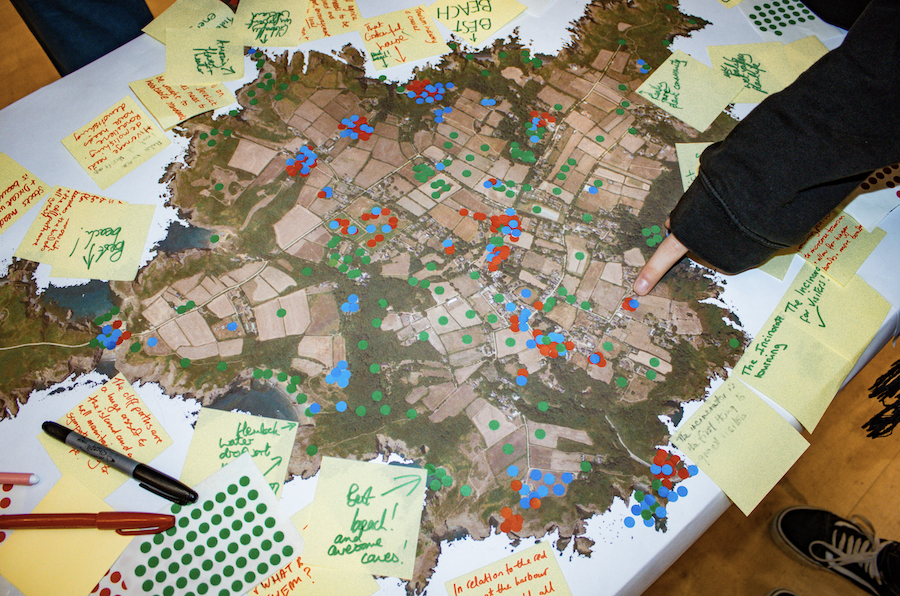
Pictured: Numerous ideas were discussed.
The occasion was illuminating, with a jovial atmosphere concentrated on bettering the island. But it also highlighted fractures, as expected, and subsequently generated questions on how to invest in existing infrastructure, much of which is deteriorating, while spending on new capital projects with limited taxes levied on a small population.
Before arriving, members of the Foundation did the local media rounds to bat off misconceptions about the Foundation and its intentions. Ben Bolgar, a Senior Director at the Foundation, began his speech at the Island Hall recognising that their phone lines had been busy with residents questioning what was planned.
He said King Charles’, and therefore their interest, is principally “in the balance between natural environments and trying to find the harmony between those environments”.
But it hadn’t always been an easy sell: “I think it's fair to say, 30 years ago, when The King was signalling some alarms about the fact that we might be getting out of balance and out of kilter with it a lot of people thought he was a bit mad. I don't think so many people think that he's mad anymore”.
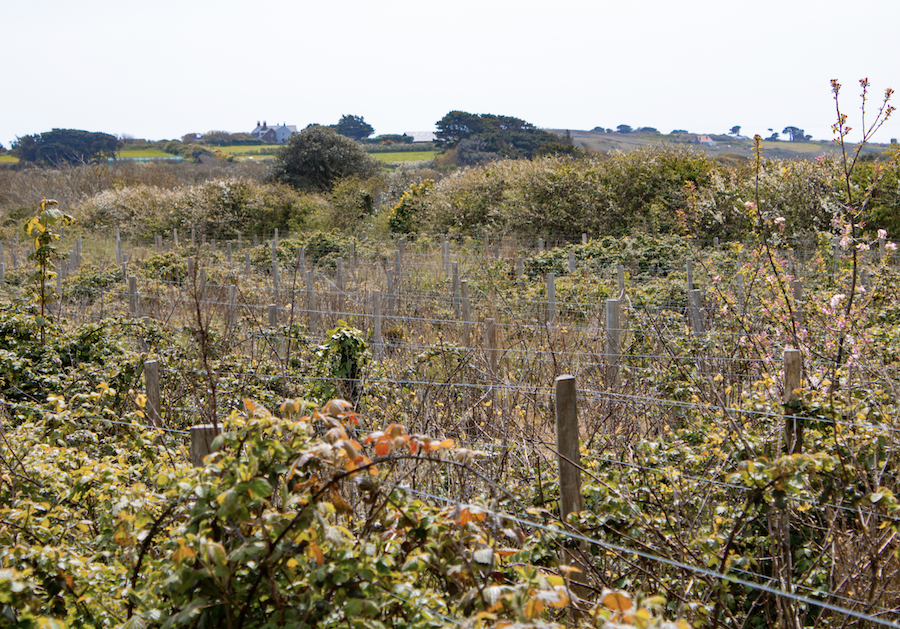
Pictured: Sark's natural beauty was highlighted by the Prince's Trust Foundation.
Sark presented a unique opportunity as an island-state, he added, given its relative protection from one of the more catastrophic effects of a warming world given its position above sea level, and since all inputs and outputs - be it produce or waste - are clear to see.
“We've been involved across the Commonwealth in other islands that aren't so fortunate. And the impacts of various environmental issues on small island states, for instance, are extremely real,” Mr Bolgar said.
Seeking to reassure, he laid out their form of neighbourhood planning: “Rather than working for landowners - for developers - we’re essentially working for communities.
“We don't have a secret plan hidden in my rucksack. We've literally a blank sheet of paper. We're here to listen to absorb and we'll record what we said to make it publicly available. A totally transparent process”.
It’s an approach to development that doesn’t start with preconceived ideas or talking down to residents: “I can assure you that’s not our style… we don’t believe that creates good outcomes,” Mr Bolgar said.
The first part of the exercise was all about honest feedback. Mr Bolgar likened it to a GP visit, where the doctor always starts with the question: “how do you feel?''.
Residents were invited to map out their thoughts - positive and negative - through an uncomplicated string of post-it notes and coloured dots to denote the good, the bad, and the opportunities.
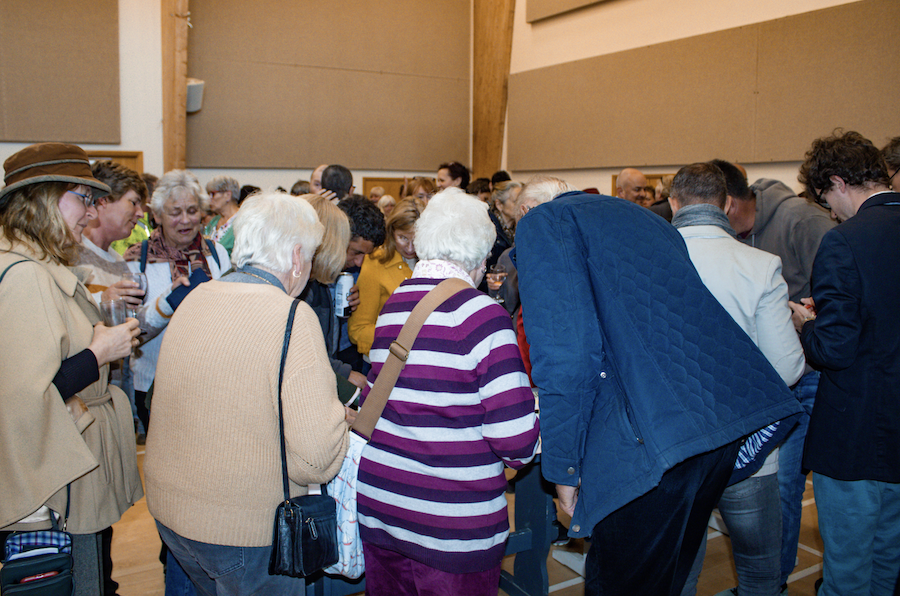
Pictured: The meeting attracted around a third of the island's population.
A technical briefing followed the next day, but access was only allowed for a select group of stakeholders. All things nature, telecoms, and healthcare were discussed, alongside in-person visits to the sites deemed bad and ripe for opportunity.
Describing that second phase, Mr Bolgar said: “We're now having a proper look around and we actually think that this isn't functioning, that's functioning really well, and then we combine both the subjective and the objective criteria together.
In the summer, a document reflecting all they had heard, learned, and seen would be published, with an opportunity for further feedback following it.
The event kicked off at 18:00 and was slated to end at 20:00, but around 50 were still lingering about the room as the clock approached 21:00. It was standing room only for most attendees as Mr Bolgar delivered his opening address. The allure of free wine and food clearly paid off. Those without a big glass of red, white, or rose were the odd ones out.
Most of the time the crowd pottered around chatting and sticking their thoughts on four charts and a large map of the island, which proved to be the most popular exercise.
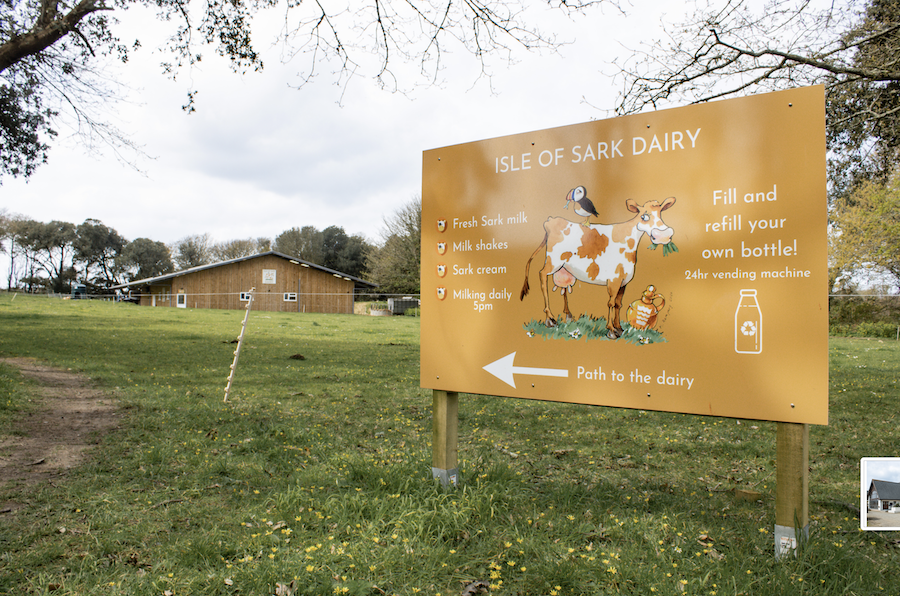
Pictured: Sark's Dairy was highlighted as a positive example of investment.
Unsurprisingly the island’s natural assets were celebrated, with disappointment expressed for land that was once agriculturally productive becoming disused. The vineyard was singled out as ripe for repurposing, such as a co-operative farm mirroring the success of the nascent Sark Dairy. Others called for stronger environmental protections, better interplay between charity organisations, and an end to pumping raw sewage into the sea and burning some domestic waste.
That led one to suggest expanding industrial activities at Le Lache alongside the existing green waste and abattoir facilities. An added boon would be ensuring tourists arriving would not be greeted by burning rubbish, a point echoed by others.
Every derelict house, hotel, and empty retail unit was plastered in dots. Many hoped for new accommodation to be built - provided it’s at affordable prices for locals - either on these sites, or undeveloped ones. The land ownership system was criticised, with one writing “while the current land holding system exists it will be very difficult to evolve a new path forward”. The local and open market set up was also said to require “rethinking”.
Other elements of key infrastructure were noted, including the poor condition of roads and La Coupee - which is visibly suffering from subsidence and is rumoured to be increasingly unsound. The harbour also represented a big opportunity given the countless map dots, with some suggestions of an improved marina for visitors and locals.
Socially speaking, people praised the tight-knit community.
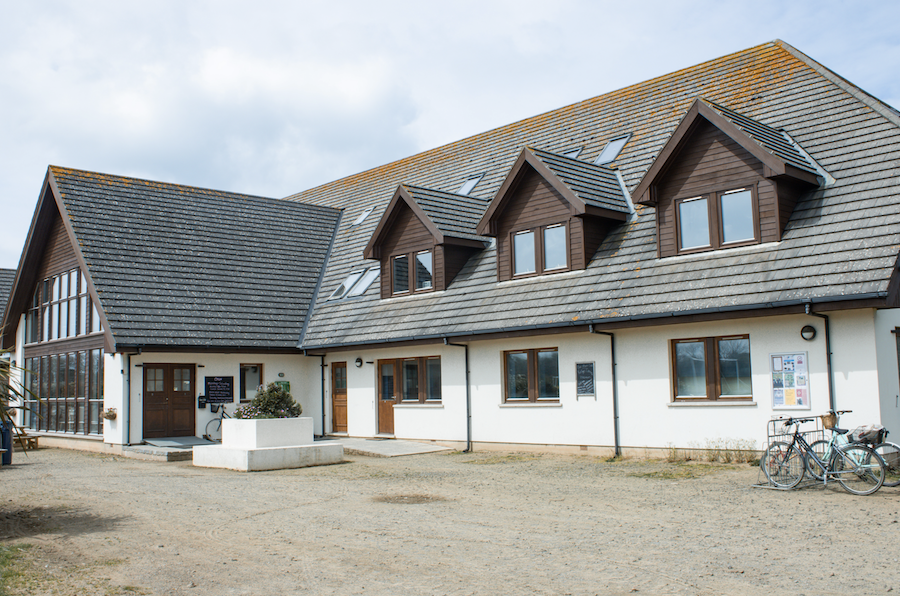
Pictured: The meeting was held at the Island Hall.
One labelled Sark “like a big family”, but others said there’s too much “us and them”. Another said some are not welcoming enough to tourists. Heavy criticism was laid at the door of government, with many citing a disconnect between the political class and the governed.
Criticism was aimed at residents too.
“Tax avoiders” featured in the negative columns, as did the owners of closed down hotels. One note read: “If a property has not been lived in for six months they should be evicted, and the house goes back for rent or sale. Stop TAX AVOIDERS! Keep workers that benefit the island”. Another said: “Attracting tax dodgers is bad for social dynamics”.
Privately I’m told the wealth gap is huge. Where in most jurisdictions the presence of high-net-worth individuals is defended as encouraging wealth creation, investment, and significant tax take from income and property, these benefits are less pronounced in Sark.
Add that to a non-existent social security net, a struggling education system, higher utility bills, no employment laws, and the perception of disengaged wealthy residents and the pipe dream of owning property, it’s clear why many are upset - even paranoid - about their community.
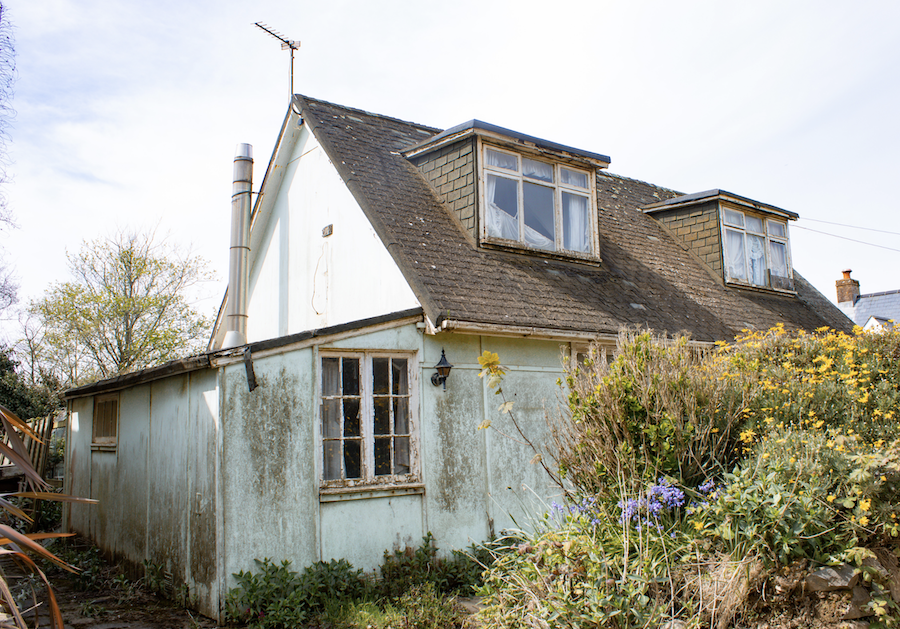
Pictured: There may be fewer derelict houses in Sark in the future if the project fulfils its aims.
I was told that some had seen red dots being peeled off the map from significant locations. Local rivalries also surfaced, with some suggesting properties had been targeted with stickers based on family feuds and other petty squabbles. One man labelled the entire map the “passive aggressive table”.
I also heard some questioning if the line between Mr Beaumont’s role as Seigneur and his commercial interests was becoming blurred. Days after the event, Chief Pleas also weighed in on a similar point. Having been initially coy about the exercise, it said most politicians attended and welcomed the insight, but noted that “overwhelming concern was expressed by islanders that this should not be linked to any commercial interests”. It added it had “every faith” in the Foundation to draw an appropriate line.
The community clearly has an appetite for collaborative public projects given the numerous green dots placed on the dairy and they truly want change for their home. You could feel it. The eco-angle was seen as a major opportunity. As was growth in the tourism sector. But they were also wary of false promises, and the threat of inaction.
Multiple residents informed me that various development plans produced over the preceding decades simply slipped away, including one published in 2013 which was derided. One prominent hotelier said more dialogue at a grassroots level is needed to inform a plan, which shouldn’t be another that will “sit on a shelf and gather dust with no action points”.
What’s clear is Chief Pleas must be a guiding force, enabling enterprise through visionary policy and by coughing up some cash. The latter will be the most troublesome.
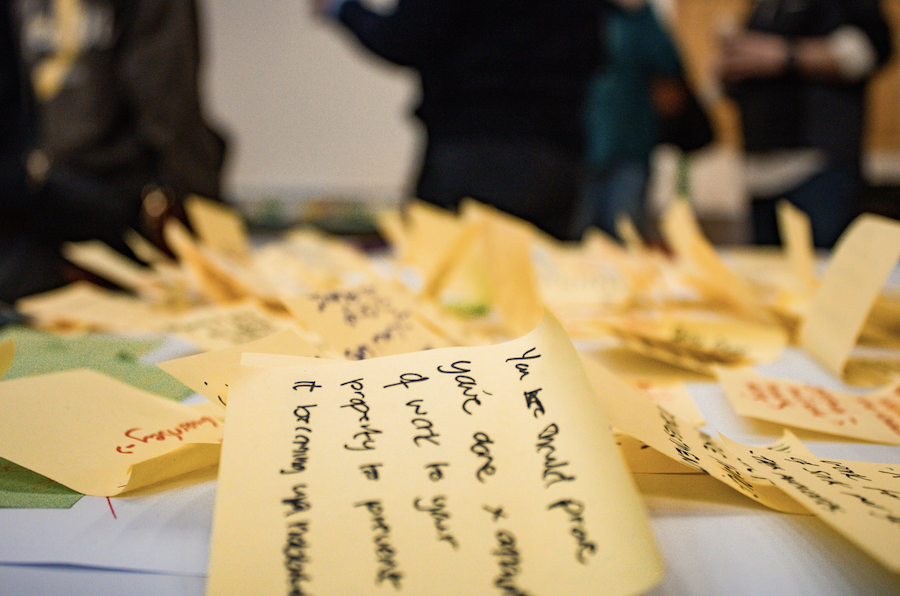
Pictured: Numerous ideas were suggested and discussed.
Sark only collects property taxes, including a levy on transfers, a personal tax, which is also tied to liveable property, and taxes on vehicles and certain imports. There’s no income, sales, capital gains or inheritance tax. There’s also no noteworthy social security provision or state-subsidised health care.
But in 2021, Chief Pleas agreed unanimously to review the island’s tax system - the first time in two decades. Speaking to the BBC, Mr Lorenz said the time was right to consider reform given the pressing infrastructure and demographic challenges. It’s not clear how advanced these investigations are, but the level of investment that’s required now, and may be publicly demanded in the near future is significant. Not to mention the legislative hurdles that must be traversed.
All eyes now will be on the initial summer report from the Foundation, and the public/political appetite to march forwards from that point. But from the meeting it’s clear that it’s a conversation residents feel is worth having.
In the middle of the meeting I stepped outside the hall. I couldn’t help but overhear a conversation between a pair as they grabbed their bikes and prepared to cycle home. “We need to jump at it,” one said, with the other audibly nodding.
“You look at the world outside, we’re lucky to be in the position we’re in,” he added.
“Getting everybody in the room together tonight, that’s the main thing.”
Comments
Comments on this story express the views of the commentator only, not Bailiwick Publishing. We are unable to guarantee the accuracy of any of those comments.